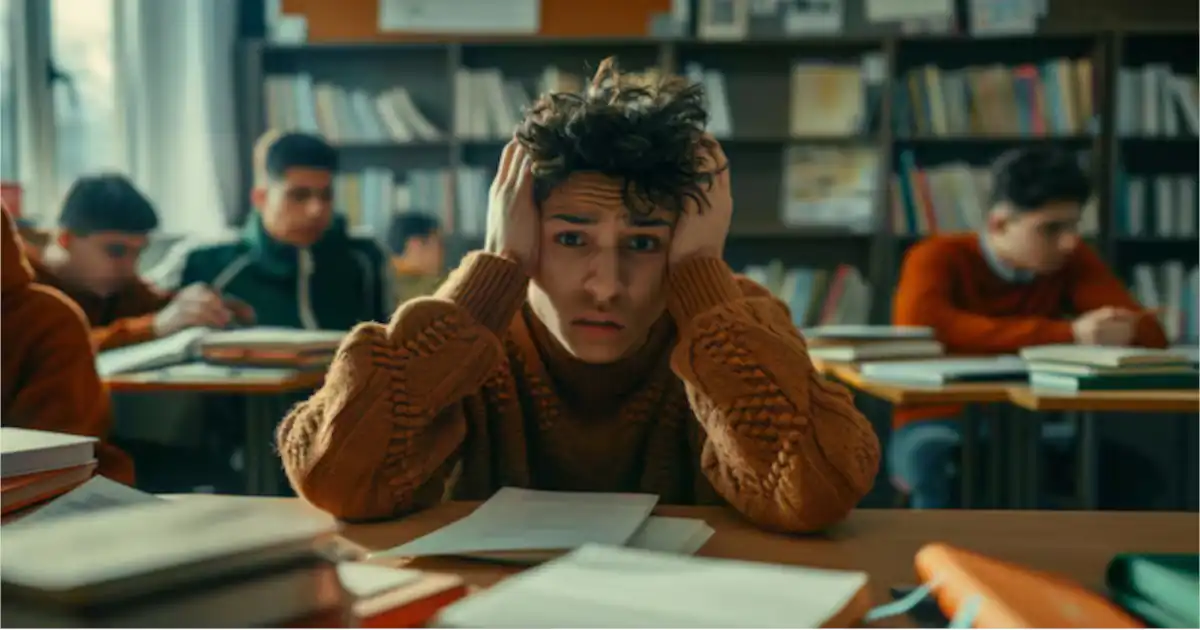Table of Contents
ToggleWhy do Some People not Trust Education: Key Reasons Unveiled
Education is often regarded as the key to personal and societal development, opening doors to opportunities and fostering growth in various fields. However, a significant number of individuals remain skeptical about the education system, questioning its efficacy, relevance, and motives. This article delves into why some people do not trust education, exploring factors such as outdated curricula, economic disparities, cultural influences, and the rising cost of formal education.
Introduction
Education is a cornerstone of modern society, essential for the development of skills, knowledge, and critical thinking. From early childhood education to higher learning, the path of formal education is designed to equip individuals with the tools they need to succeed in life. Despite its perceived benefits, there is a growing sentiment of distrust towards educational institutions worldwide.
This distrust can stem from several sources, including dissatisfaction with the way education is delivered, concerns over its accessibility, and doubts about the real value it adds to individuals’ lives. As we explore these perspectives, it becomes clear that the reasons for mistrust are complex and multifaceted, reflecting deeper societal concerns.
The Historical Perspective: Education as a Tool of Control
One reason for the distrust in education can be traced back to history, where education was often used as a tool of control by the ruling class. In various societies, access to education was limited to the elite, and the content was controlled to maintain the status quo. For example, during colonial times, many colonizers used education to spread their culture and suppress local traditions, creating a system that enforced conformity rather than fostering critical thinking or creativity.
Even today, in some regions, the remnants of this colonial mindset persist, with education systems designed to perpetuate certain ideologies. This historical context contributes to skepticism about the intentions behind formal education. Some individuals view it as a means to control thought and behavior, rather than a genuine effort to empower individuals.
Outdated Curricula and Irrelevance
One of the most frequently cited reasons for distrust in education is the perception that curricula are outdated and irrelevant to modern life. The world is changing at an unprecedented pace, driven by technological advancements, globalization, and shifting social norms. However, many education systems have struggled to keep up with these changes, relying on outdated teaching methods and curricula that do not reflect the realities of the modern world.
For instance, the focus on rote memorization and standardized testing can leave students ill-prepared for the challenges of the 21st-century job market, where creativity, critical thinking, and adaptability are highly valued. This gap between what is taught in schools and what is needed in real life leads many people to question the value of formal education. They argue that the system is failing to equip students with practical skills that are relevant to today’s world, fueling distrust.

Another significant factor contributing to the distrust in education is the economic disparity in access to quality education. In many parts of the world, quality education is a privilege rather than a right. Families from low-income backgrounds often struggle to afford good schools, leading to unequal opportunities for their children. In contrast, wealthier families can afford private schooling or move to areas with better public education systems, further widening the gap.
This inequality reinforces the belief that education is not a level playing field. When people see that their economic status determines the quality of education they or their children receive, they may become disillusioned with the system. They may feel that education is not designed to uplift everyone but to maintain existing societal divisions. This perception is especially prevalent in developing countries, where disparities in access to education are stark.
The Rising Cost of Higher Education
The skyrocketing cost of higher education is another major source of mistrust. In many countries, the cost of attending college or university has risen dramatically over the past few decades, leaving students burdened with significant debt. This financial strain often leads to a questioning of the return on investment in education. Many graduates find themselves saddled with debt, only to struggle to find jobs that match their qualifications.
The belief that higher education is more about profit than providing knowledge has led to growing skepticism. When education is perceived as a business rather than a public good, it erodes trust in institutions that are supposed to serve the best interests of society. This commercialized approach to education can make individuals question whether universities and colleges are truly invested in their personal and professional development or if they are simply revenue-driven enterprises.
The Influence of Technology: Self-Learning and Online Education
The rise of technology has transformed how people access information, and this shift has contributed to the growing mistrust of traditional education systems. With the internet at their fingertips, many individuals are turning to online resources, self-paced learning platforms, and digital courses to gain knowledge and skills outside the formal education system.
This trend highlights a growing belief that formal education is not the only path to success. Self-taught Education system individuals, particularly in fields like technology and entrepreneurship, often outperform their peers with formal degrees. As a result, the narrative that traditional education is the only way to acquire valuable skills is losing credibility. The ability to learn and succeed without formal education challenges the notion that institutionalized learning is a necessity.
Mismatched Expectations: Education and Employment
A significant reason for distrust in education is the mismatch between educational qualifications and employment opportunities. Many people pursue degrees with the expectation that their education will lead to a stable job and financial security. However, in many cases, graduates find themselves struggling to secure employment, particularly in fields that are oversaturated with qualified candidates.
The disconnect between education and employment prospects has led some individuals to question whether the system is adequately preparing students for the workforce. The rise of the gig economy, freelance work, and alternative career paths has further complicated this relationship, leading to skepticism about the necessity of formal education in an evolving job market.
The Cultural Perspective: Education and Identity
In some cultures, there is a tension between formal education and traditional values. Education, particularly Western-style education, is sometimes viewed as a threat to cultural identity. In such contexts, individuals may distrust education because they see it as a force for cultural homogenization, eroding local traditions and beliefs.
This sentiment is particularly strong in regions where indigenous knowledge systems and practices are at odds with the formal education curriculum. When education is perceived as a tool for cultural assimilation, it can breed resentment and skepticism. People may feel that the education system is not designed to benefit them but to impose foreign ideals and ways of thinking.
Education and the Media: Shaping Perceptions
The media also plays a role in shaping public perceptions of education. Negative portrayals of schools, universities, and educators can contribute to distrust. Stories of failing schools, corrupt institutions, or Education system underqualified teachers can undermine confidence in the system. Additionally, the media’s focus on sensationalized stories about student debt crises or jobless graduates can amplify concerns about the value of education.
While the media can raise legitimate concerns, it can also create a distorted view of the education system. For example, not all students end up in debt, and many graduates find meaningful employment. However, the constant barrage of negative news can lead people to question whether the education system is truly working in their favor.
Political Influence and Mistrust in Education
Politics can significantly influence education systems, sometimes leading to public distrust. When education becomes a political battleground, with policymakers pushing their agendas onto school curricula, it can erode trust in the system’s impartiality. For instance, debates over what should or shouldn’t be taught in schools, such as sex education or the teaching of certain historical events, often reflect broader political and ideological conflicts.
When education is seen as a tool for political manipulation, people may begin to question its integrity. They may feel that the system is not focused on educating students but on promoting specific political ideologies or catering to special interest groups. This perception can lead to a lack of trust in the education system as a whole.
The Push for Alternative Education Models
As distrust in traditional education grows, so does interest in alternative education models. Homeschooling, unschooling, and other non-traditional approaches are becoming more popular, particularly in regions where the formal education system is viewed as inadequate. These models often emphasize personalized learning, Education system creativity, and critical thinking, addressing some of the concerns people have with conventional education.
Parents who opt for alternative education for their children often do so because they feel that the traditional system does not meet their needs. Whether due to concerns about safety, curriculum content, or the overall philosophy of schooling, the push for alternatives reflects a deeper dissatisfaction with the current state of education.
Conclusion: Rebuilding Trust in Education
Rebuilding trust in education requires addressing the concerns that people have about the system. This includes updating curricula to better reflect the needs of the modern world, making education more accessible and Education system equitable, and ensuring that institutions are transparent and accountable. Additionally, there must be a shift towards recognizing and valuing alternative forms of education, from online learning to vocational training, as valid paths to success.
Ultimately, education remains a vital part of personal and societal development. However, to regain the trust of those who are skeptical, it must evolve to meet the challenges of the 21st century. By addressing the root causes of distrust, education can once again be seen as a tool for empowerment, rather than a source of frustration or disillusionment.
Frequently Asked Questions (FAQs)
What are the common reasons people distrust formal education?
Many individuals distrust formal education due to outdated curricula, economic disparities, and the rising cost of higher education. Other factors include the mismatch between educational qualifications and job opportunities, as well as concerns about the political and ideological influence on school systems.
How does the cost of higher education contribute to mistrust?
The increasing cost of college and university education often leaves graduates burdened with debt, causing many to question whether the financial investment is worth the return. This has led to growing skepticism about the value of higher education and whether it truly benefits students in the long term.
Are there alternatives to traditional education?
Yes, many people are exploring alternatives like homeschooling, online learning platforms, and self-directed education. These options are gaining popularity as they offer personalized learning experiences and are often more aligned with modern job market needs.
How do outdated curricula affect trust in the education system?
Outdated curricula, which emphasize rote memorization and lack practical, real-world applications, can leave students feeling unprepared for the demands of modern careers. This disconnect between education and real-world skills is a significant factor in the growing distrust of formal schooling.
Does cultural influence play a role in education skepticism?
Yes, in some societies, education is seen as a tool for cultural assimilation, where formal schooling may Education system undermine traditional values and indigenous knowledge. This creates resistance to the system, as people feel it threatens their cultural identity rather than supporting it.
Can technology help rebuild trust in education?
Technology has introduced new learning methods that offer flexibility and access to information outside of traditional classrooms. Online courses and digital resources can bridge the gap between outdated education systems and the skills required in today’s rapidly evolving world, potentially helping to rebuild trust.
READ ALSO: How Long Do Zyns Last? A Comprehensive Guide
 Touch Blog
Touch Blog



